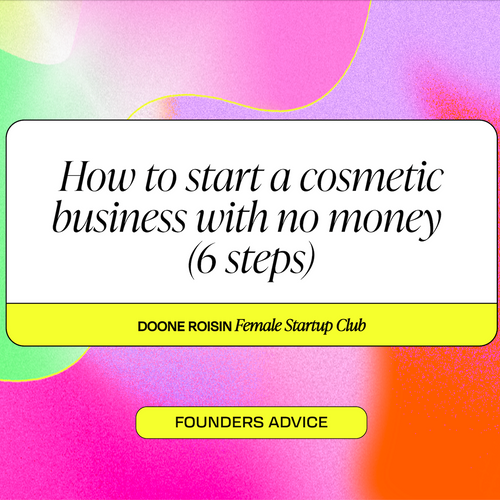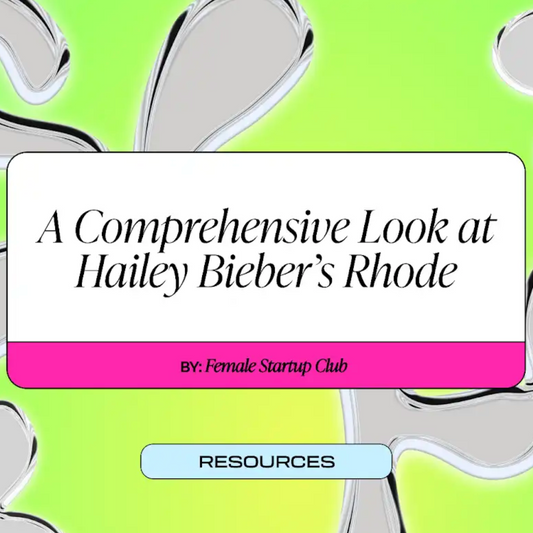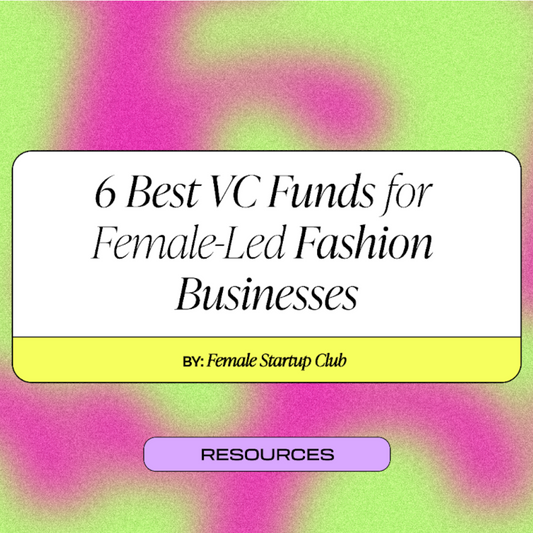Joining me on todays’ episode is Lauren Picasso, Founder of Cure Hydration.
Cure Hydration is an organic electrolyte powder that has 4x the electrolytes of sports drinks, but no added or artificial sweeteners, sold in more than 5000 stores.
In this episode Lauren shares her journey to starting the business and how she validated her idea, a crazy to-market launch strategy that landed her thousands and thousands of emails and lessons she’s learned along the way.

Starting a consumer packaged goods (CPG) brand can be a daunting journey filled with countless hurdles. For one entrepreneur, the early days of launching her product were both challenging and exciting. From figuring out marketing strategies to securing funding, her path is a relatable tale of perseverance and creativity.
Finding a Manageable Path
One of the first hurdles she faced was the daunting task of dividing up a significant investment into flavors. Instead of feeling overwhelmed by the prospect of a hefty commitment—like managing $100,000 for each flavor—she wisely decided to split it into three flavors, resulting in a more manageable $33,000 per flavor. This shift made a world of difference, allowing her to focus on each flavor's unique attributes and marketing strategies without feeling buried under pressure.
The Early Marketing Hustle
In the early stages, she relied heavily on a pre-launch referral campaign. This innovative strategy allowed potential customers to visit her fully built-out website, drop their emails, and refer friends to unlock exciting prizes. From lifetime subscriptions to the grand prize of a Peloton bike, the campaign was designed to create buzz and excitement. It was a hefty investment, but she understood that getting a solid group of enthusiastic referrers was worth it.
"Wow, over a thousand people participated!" one might exclaim upon hearing her success story. Indeed, this campaign not only generated an impressive initial customer base but also forged lasting relationships with loyal customers, like the one who won that coveted Peloton. These connections became invaluable as her brand grew.
Sampling: The Key to Customer Conversion
As her brand started gaining traction, she discovered that customer sampling was one of the most effective ways to convert interested shoppers into loyal customers. Initially, she spent countless hours at fitness studios, offices, and races, offering samples of her powdered drink mix. The feedback was enlightening; customers often approached with low expectations were surprised by how delicious her product tasted. This firsthand experience helped her refine her understanding of her target market and identify which demographics were the most engaged.
However, when the pandemic hit and in-person sampling became impossible, she quickly pivoted to partnering with retailers for their sampling programs. Collaborating with over a thousand Walmart stores allowed her to include product samples in online grocery orders—a creative way to adapt to the changing landscape of retail.
The Tipping Point
February of this year marked a significant turning point for her brand. After a successful pilot with CVS, they rolled out her product in nearly 2,900 stores. This partnership not only elevated her brand's visibility but also coincided with a surge in health-conscious shopping due to the pandemic. Customers were eager to stock up on healthy products, and her brand benefitted significantly from this shift in consumer behavior.
Navigating Fundraising Challenges
One of the most crucial aspects of her journey was securing funding. The onset of the pandemic presented unexpected challenges for fundraising, as many investors were more focused on their existing portfolios. However, she managed to secure alternative capital to buy inventory by selling her invoices to a fund. This clever move allowed her to maintain cash flow and ultimately position her company as profitable by the time she sought equity funding. Her self-sufficiency became a strong selling point to investors during uncertain times.
Overcoming Challenges
No entrepreneurial journey is without its struggles, and hers was no exception. She faced significant challenges in achieving product-market fit. The initial product launch revealed mixed reactions, particularly regarding taste. Recognizing that a high satisfaction rate was essential for success, she chose to reformulate her product, which temporarily stunted growth. But this decision proved wise, as it ensured that when she did market her product, it would resonate with consumers.
The Future Looks Bright
Fast forward to today, and her brand is thriving. With a presence in over 4,000 stores, including major retailers like CVS, Walmart, and Whole Foods, she continues to ride the wave of growth. Exciting new partnerships are already lined up for the coming year, signaling a bright future for her venture.
Her journey illustrates that while the path of entrepreneurship can be filled with ups and downs, resilience, creativity, and a willingness to adapt are key ingredients for success. So, for anyone looking to embark on their entrepreneurial journey, remember: it's all about finding manageable steps, building genuine connections, and never shying away from challenges.



